Why Does My Dog Chew Pillows and Blankets?
Chewing is a normal part of life for most dogs. Also, dog chew pillows and blankets due to boredom, stress, or as an instinctual behavior. Chewing can provide comfort and release pent-up energy. It’s important to understand why your dog is chewing so you can address the underlying cause and prevent further damage.
Dogs may chew out of boredom if they lack physical and mental stimulation from their humans. Without enough exercise and playtime, dogs often turn to destructive behavior’s like chewing to pass the time. To help counter this, ensure your pup gets plenty of physical activity throughout the day by playing fetch or going for walks and providing interactive toys that will keep them engaged mentally. According to the American Society for the Prevention of Animal Cruelty (ASPCA), the following are reasons your dog chews:
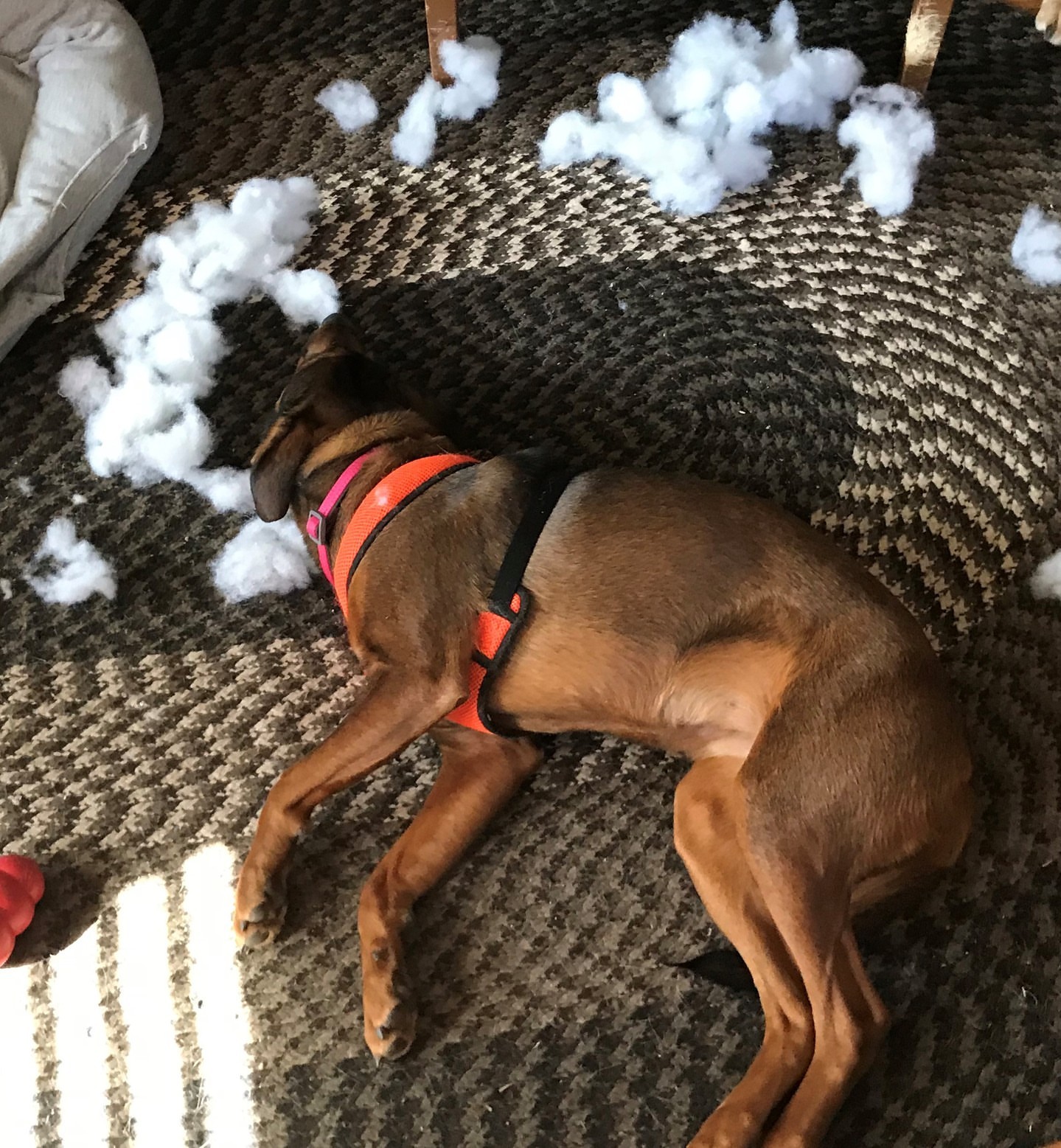
Puppy Feeding
Like human infants, puppies go through a phase where they lose their baby teeth, and then experience pain when their adult teeth come in. This stage of chewing usually ends at six months.
Hunger
Your dog could be chewing on blankets because he is hungry. You can create a feeding schedule and have your dog eat each day simultaneously.
Dogs will often use this chewing to reach objects related to food or that smell like food.
You may like: What happens if a dog licks human blood?
Absence of exercise and Boredom
Lack of exercise and mental stimulation can also lead to excessive chewing behavior. Boredom can lead to excessive chewing behavior by your dog. This can be a great way to keep them entertained.
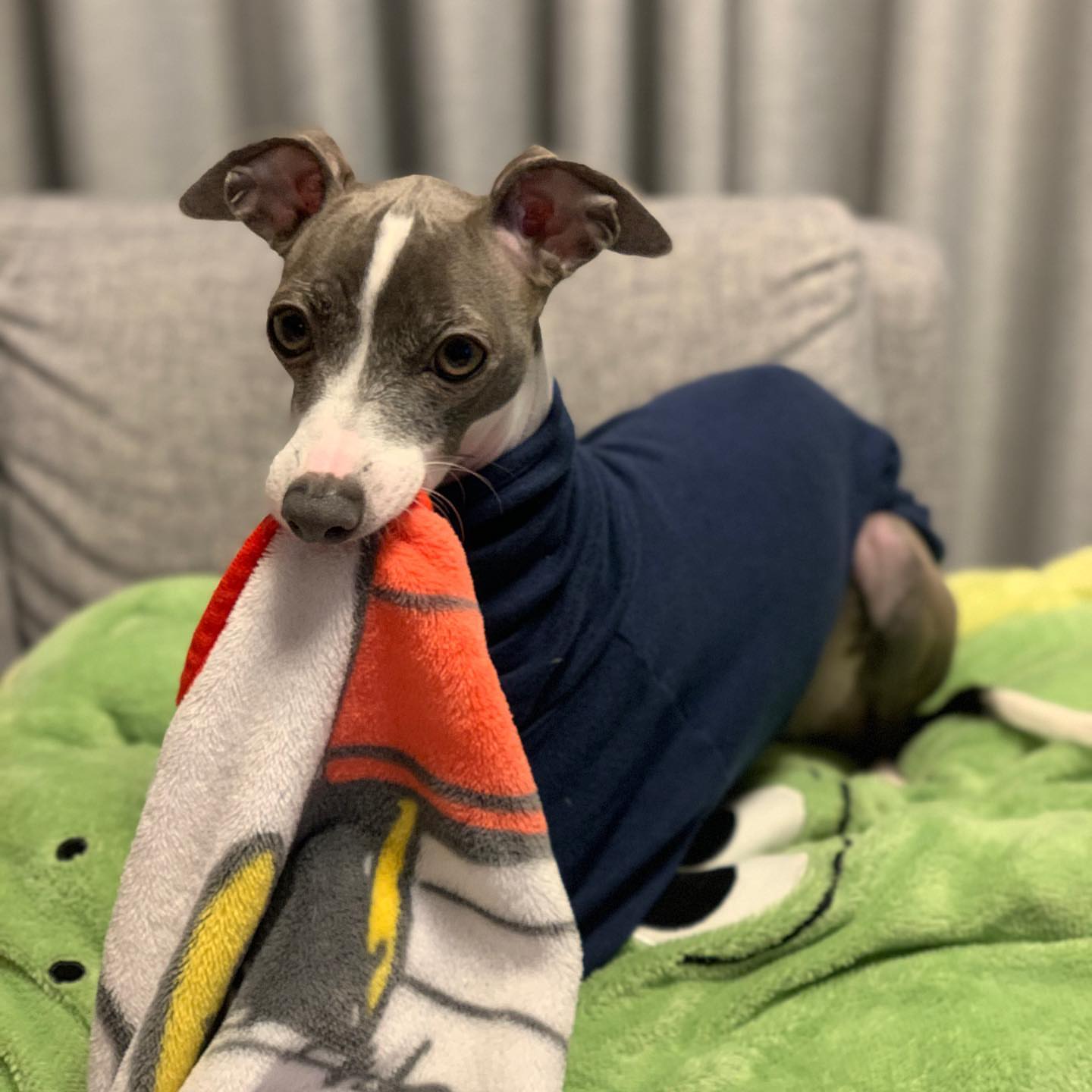
Natural habit
Chewing is an instinctive behavior for dogs. This activity helps strengthen their jaws and cleans their teeth. Dogs love to chew bones, sticks, and any other material they can find.
Adult dogs and puppies tend to chew on anything. To avoid this, give your dog a variety of chew toys. Dogs need to learn which toys are acceptable and which ones are not. You can train your dog or get help from a professional trainer.
Anxiety
An anxious dog will chew on objects if they are left alone. Dogs get anxious when you are away from home, so they chew on your blankets. dogs suffering from separation anxiety should be taught to love being left alone.
You may like: Why is my dogs pee sticky?
Excitement
Dogs can get excited about many reasons and will eat blankets. It could be reuniting the owner after a long absence or welcoming visitors to your home. Proper socialization and training can help reduce your dog’s excitement.

Frustration and stress
Your dog may chew on objects when frustrated or in stressful situations. You can frustrate your dog by preventing him from engaging in the activities he loves.
They will use destructive behavior, such as chewing, to express frustration when they don’t get what they want.
Medical reason
An underlying medical condition can be indicated by excessive chewing. Pica is a condition where a dog doesn’t get enough nutrients to maintain a healthy diet.
You may liek: Can Dogs Drink Oat Milk?
Boredom/Stress
Boredom may be the reason your dog chew pillows and blankets if nothing else makes sense. Boredom is more common in active breeds such as Border Collies and Dobermans, but it can happen to any dog. They can get some exercise and anxiety relief by chewing.
Boredom doesn’t just limit itself to blankets. Boredom can also lead to boredom in dogs who chew on furniture and other household items like shoes, couches, and furniture.
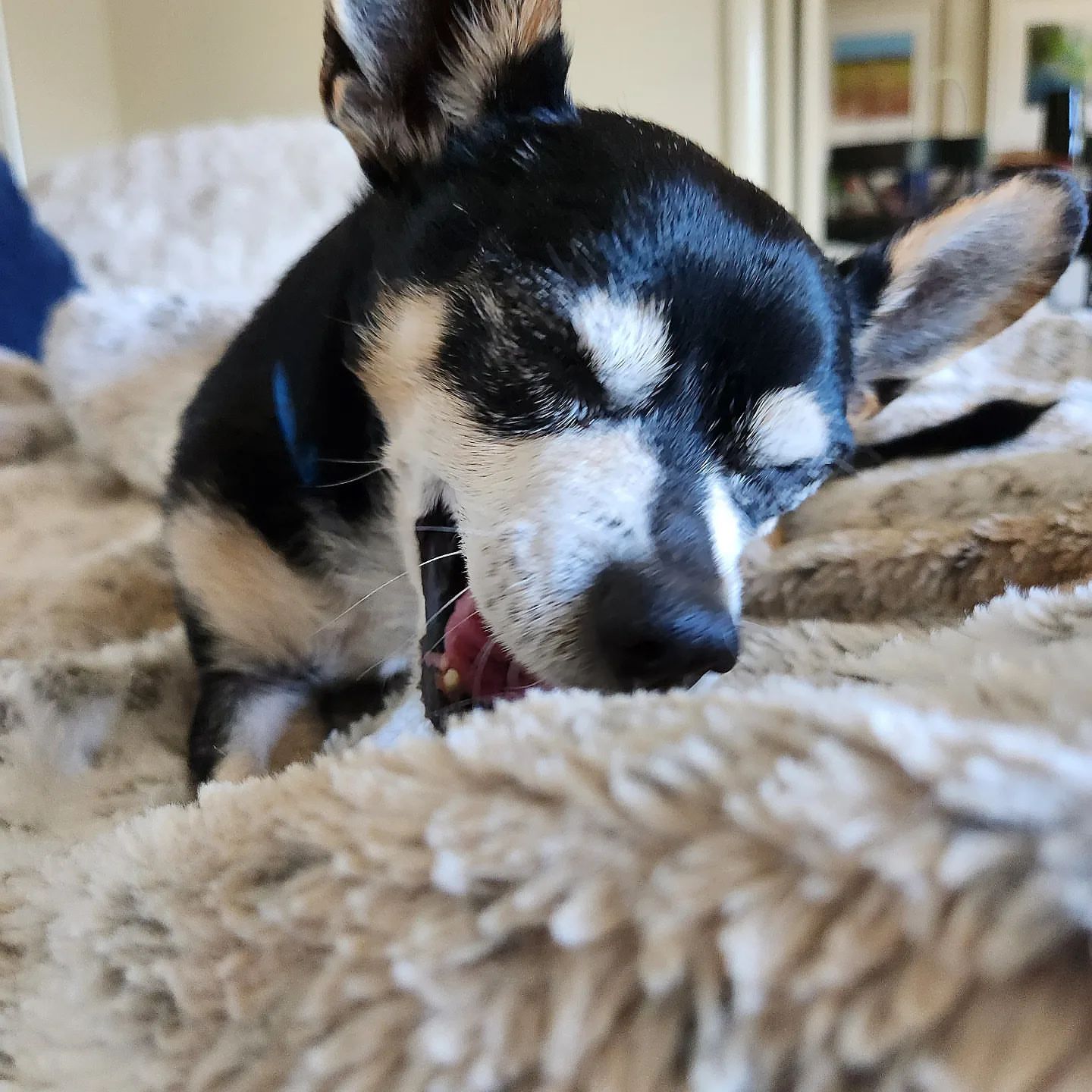
How to Stop my Dog from Chewing Blankets?
Get Lots of Chewing Toys & Treats
A large selection of chew toys can help to prevent your dog from chewing all the things in your home. You can relieve your dog’s natural habit of chewing and reduce boredom and anxiety by giving him a variety of chew toys. Chew treats can be used to keep your dog busy and help with his dental health.
You may like: German Shepherd Shih Tzu Mix.
Dog proof your house
You should keep valuables away until your dog is restricted in his chewing. You should store shoes and clothes in a closed closet. However, dry laundry should be placed in a hamper. Books can be kept on shelves. Your dog will be more successful if you make it easy.
Mental, physical and mental exercise
Your dog needs to be trained in a way that keeps him mentally and physically stimulated. You can stop your dog from chewing blankets by giving him enough exercise.
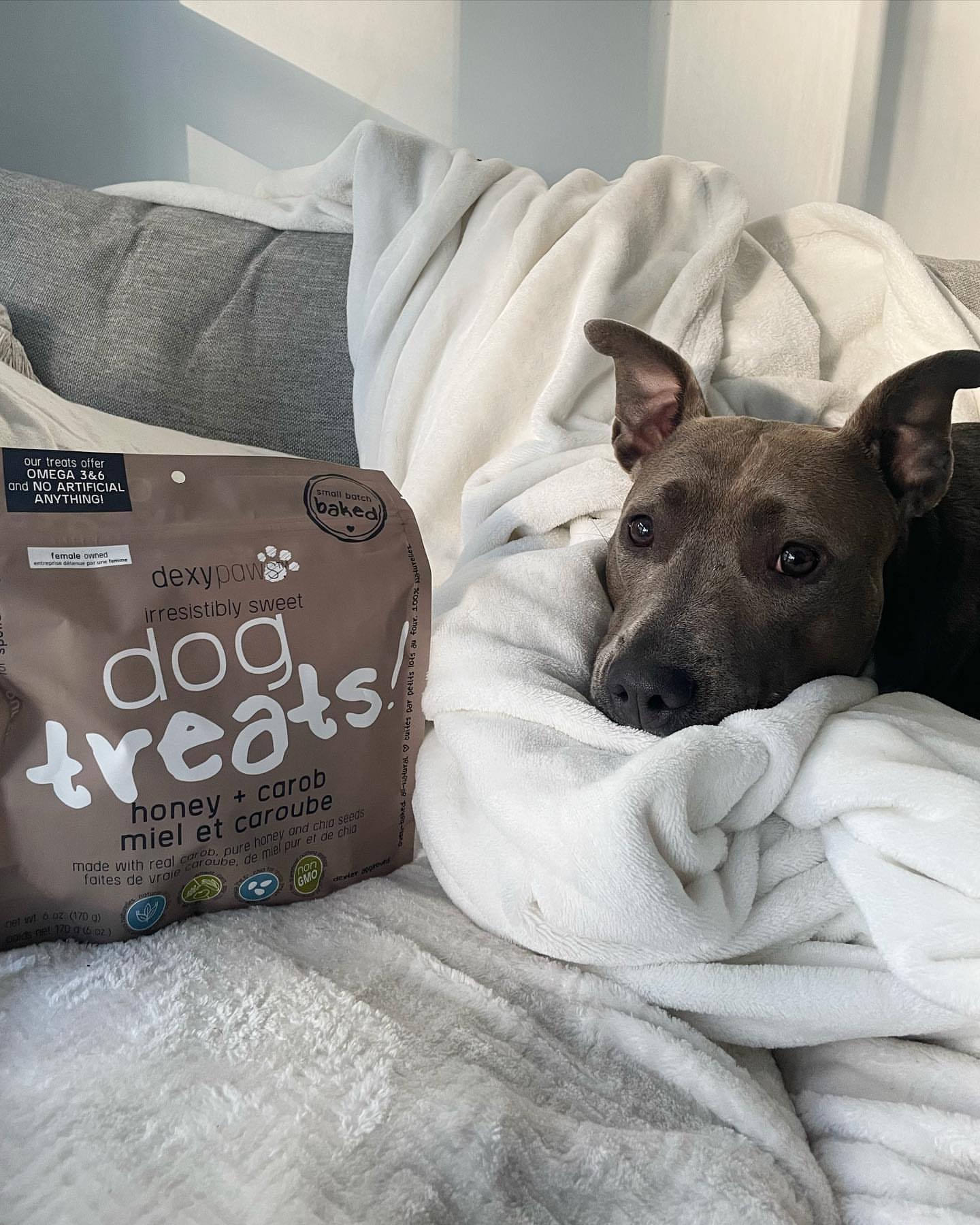
Use a chewing deterrent
Chewing deterrents are a great way to keep your dog from chewing on unsuitable items in the house. Spray the Deterrent on any object you don’t wish your dog to chew. Spray the Deterrent on all objects you don’t wish your dog to chew. Every day, apply the Deterrent for two to four more weeks.
Encourage the use of inappropriate items
Keep an eye on your dog during walks until he stops chewing. If your dog is chewing or licking something that isn’t right, you should tell him to stop.
You may like: Akita Belgian Shepher mix.
Praise him
Reward your dog for showing improved behavior. Praising your dog will help him to learn quickly and improve his behavior. Reward your dog for good behavior by giving him toys and treats.
Do not punish or hit
You will not change the behavior by hitting or punishing. Punishment will only make it more difficult. He won’t be able to relate the punishment to something he did minutes or hours ago.
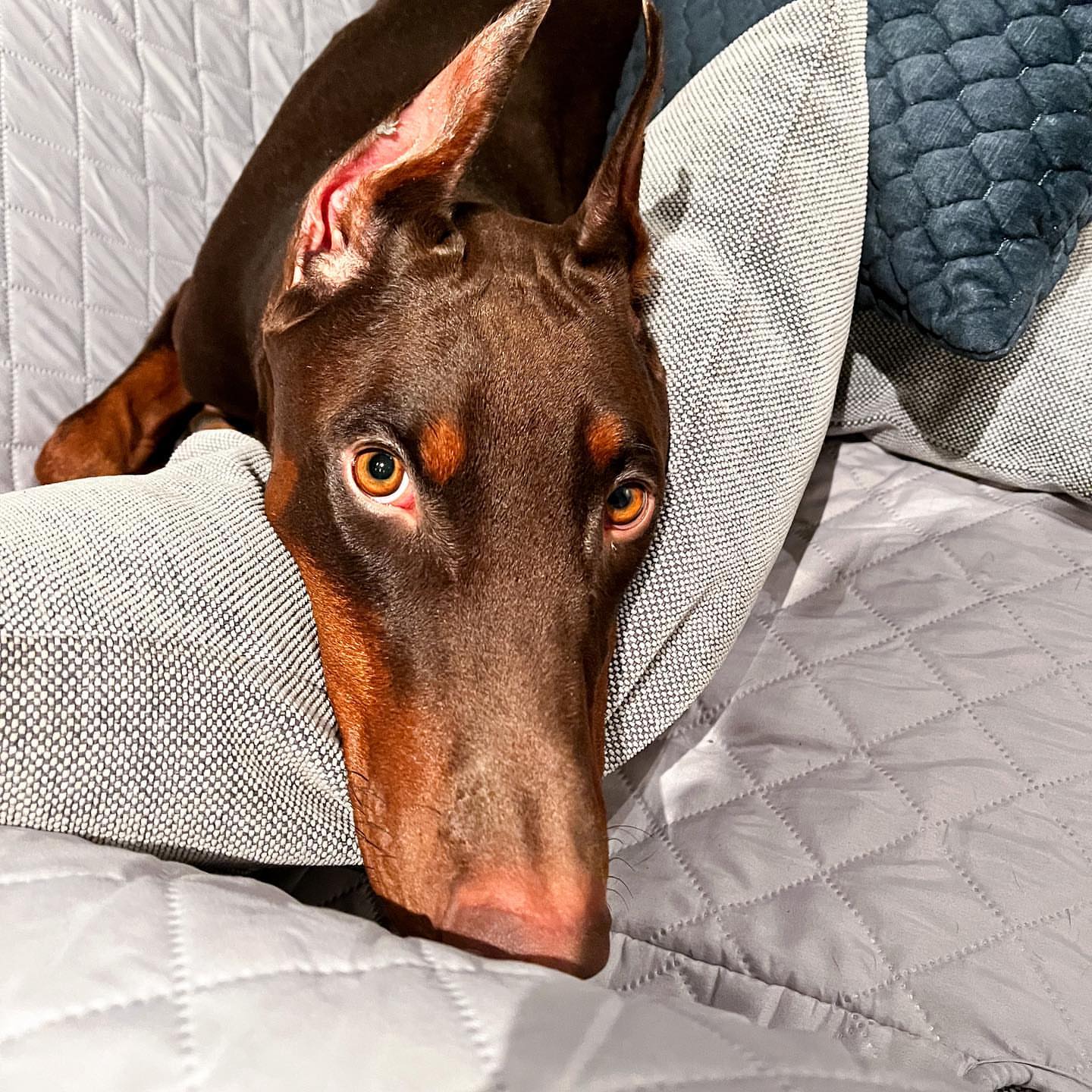
Things to Avoid
Dogs left unattended for too long can become frustrated and may chew. Pet owners may confine their dogs in a crate to keep them from chewing on objects. Dogs will be more aggressive if you do this. It will also make it difficult to train them. It will not help to spank or hit your dogs. To correct wrongdoing, do not use inhumane means.




